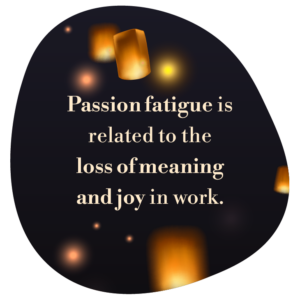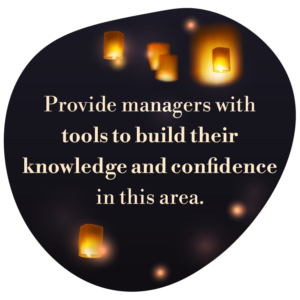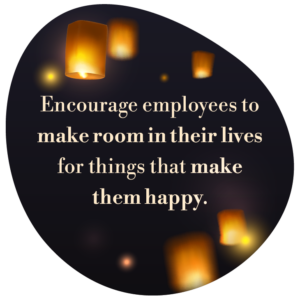“We’re born with millions of little lights shining in the dark, and they show us the way, one lights up, every time you feel love in your heart, one dies when it moves away.”
These touching words, from the song, “All the Little Lights” by Passenger, represent the guiding sparks of warmth, joy and motivation in our lives, whether at home or in our communities or careers. They also capture that feeling we have when something that was once special and meaningful becomes lost.
Also known as compassion fatigue, passion fatigue defines the damaging result of being too passionate about something. It’s that state of despondency we face when our personal North Star flickers and dims.
In our careers, that dedication and desire to do a great job, fuelled by our purpose, can sometimes kick into overdrive. This is when we can find ourselves caring too much. The result can lead to extreme fatigue, stress, disillusion and complete disengagement.
Whilst it’s linked with burnout, passion fatigue is related to the loss of meaning and joy in work. It tends to be more common in health professions like first responders, doctors, nurses and GPs. It’s also linked with those who work for a cause that they believe in deeply such as those employed in the charity sector. And it can affect people who have high stakeholder investment, like comms and HR professionals. 
Some common contributing factors of passion fatigue include mandated office time, poor leadership behaviours and attitudes, and insufficient recognition. Lack of resources to do the job well is a challenge too, as well as the volatile economic environment we are all wrestling with. However, passion fatigue can be addressed and even prevented with long-term self-care, social support, boundary setting and professional guidance.
We were inspired by a webinar held by the fab folk at CIPR Inside on this topic. We decided to take a peek under the covers and explore some of the ways that workplaces can play their part in counteracting those passion killers:
- Light the way – it’s critical that people are aware of the risks and signs surrounding passion fatigue in themselves and in others. Educate employees by signposting them to reputable sources internally and outside of the organisation. Provide line managers with tools and guides to build their knowledge and confidence in this area.
- Create colleague constellations – explore ways to repair relationships between team members, colleagues and managers that have been damaged by the stresses and strains of passion fatigue. Turn to your training on mental health, self-awareness, emotional intelligence and communication skills to raise the bar.

- Inform and illuminate – reset more realistic expectations and goals for employees that are aligned to their position. Role clarity can help to prevent conflict, overload or ambiguity which can lead to unnecessary stresses and strains.
- Enable freedom to explore – the guardrails of role clarity are important, but within them, employees need to feel empowered to make their own decisions. This helps them to be more confident and capable of thriving. Autonomy can work wonders when it comes to keeping things in balance but keep a check on those who may be feeling overly responsible or accountable.
- Stimulate the spark – provide opportunities for colleagues to gain fresh perspectives and rediscover some of the drivers behind their passions. We run creativity workshops at Alive to provide spaces for teams to come together outside of the day job and stretch their creative muscles. We share weekly activities too, through our Creativity Bootcamp, to keep the inspiration and ideas flowing for everyone.

- Encourage extraterrestrial activities – on the subject of creativity, encourage employees to make room in their lives for things that make them happy. Ask them to share what they’re doing with others to inspire and motivate them too, whether that’s sporting activities, musical interests or artistic endeavours.
- Set an orbit for personal boundaries – passion for what we do can become all-encompassing so encourage employees to set their own non-negotiables, like leaving work on time and saying no when to-do lists are becoming unmanageable.
- Make the most of your moments – help people set aside time to review how their time is being spent and how to prioritise their tasks. Encourage the use of things like time-blocking and the Pomodoro technique to protect their day.
- Recharge the batteries – it’s hard for those with a deep passion for what they do to stop and take those vital breaks. They don’t want to feel like they’re letting the team down by stepping away for a moment. Lead by example by taking regular breaks and sharing how this has helped to recharge your energy and reduce your stress.
- Build a connected solar system – invite people to have open conversations about their challenges by creating safe spaces, forums and groups dedicated to this topic. If you already have a wellbeing or mental health network consider holding a dedicated session about passion fatigue and adding it to the regular agenda.

Keep the little lights from burning out
Don’t let your people pay the price for caring too much. For organisations and leaders who want to protect their people from the perils of passion fatigue, consider some of these fixes to help reignite some of the love that’s lacking.
Passion fatigue is a common issue that left unchecked can be serious. If it’s something you feel you’re struggling with, have a conversation with someone, whether that’s a colleague, close friend, family member or GP, to help you gain perspective and control.
And if you want to chat with us about how we help to shape and amplify your narrative too, get in touch with the team at Alive and we’ll be happy to chat it through.
By Caroline Roodhouse for Alive
















